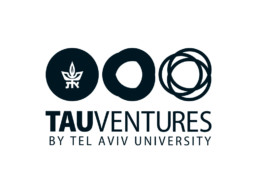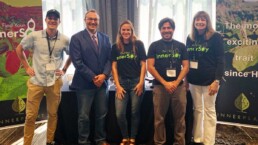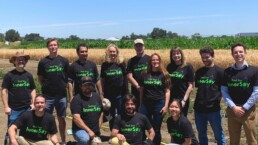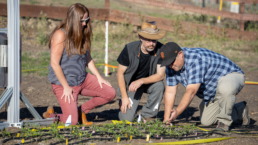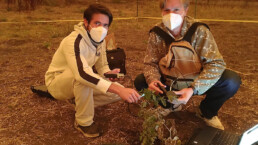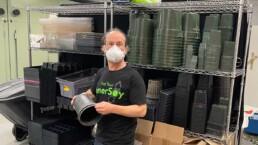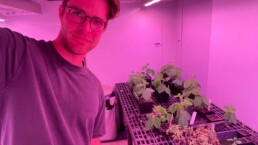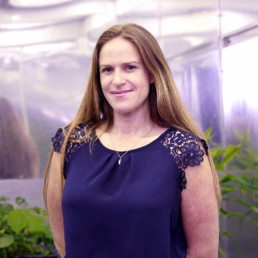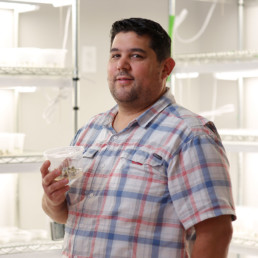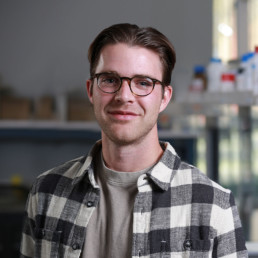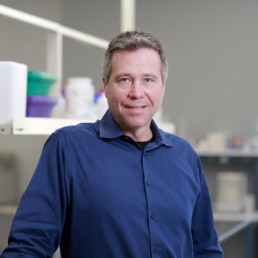Plants communicate, we give them a voice
InnerPlant Living Sensors signal their needs in a scalable, affordable way to reduce chemical use and increase crop yields
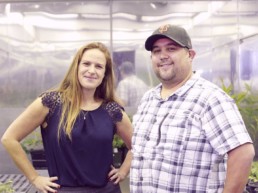
How we started
(Like all good stories, it began with a seeded idea. A good one.)
Shely grew up in Israel and came to the United States to get her MBA at Stanford, where she chose entrepreneurship as her focus. Inspired by some work her father-in-law was doing in biosensors, Shely saw an opportunity to create a lasting, positive change in the world. Rod worked on his family’s farm in the field and drove a tractor. He didn’t plan to work in agriculture, but as soon as he started working in a plant genetics lab, he loved it.
How we think
(Well. We think about farmers first)

Our Mission
Plants communicate. We give them a voice. With InnerPlant they can tell us what they need and when, providing farmers timely, actionable data, increasing crop yields, reducing chemical use, and planting healthier futures.
Our Vision
Plants will be the guiding light to resilient farming. At InnerPlant we develop technology platforms that will contribute to healthier soil, sustainably feed the world, and ease global food chain supply challenges.
Our Values
We value the critical role farmers play in society. But the challenges they face in managing crop stress requires them to apply chemicals in advance everywhere because they’re unable to identify problems early enough to take action. We believe crop health must be solved on a plant-by-plant basis. By digitizing a plant’s stress with our living sensors, we can spotlight areas of concern allowing farmers to pick the right treatment at the right place and the right time to protect crops and increase yields. Data driven farming at the plant level will allow profitability and sustainability to finally coexist.
InnerPlant's Living Sensors signal their needs so farmers can quickly take corrective measures to protect the crop, reduce chemical use, and increase crop yields in a scalable, affordable way.
$250B
Spent On Chemicals
30% Over Applied
$800B
Lost to pathogens
20% Of Annual Yields
Chemicals are over-applied by 30%, but still, 20% of yields are lost to pathogens.
Our InnerValues
Be Brave
It is our responsibility to set an example and boldly share our innovation and expertise to help transform the way our community farms for the best outcomes.
Be Genuine
In all choices and actions, we demonstrate accountability and transparency. From the promises we make and the value we create, to the results we provide, we are lead by our best selves.
Be Inclusive
Sincere respect and courtesy for our community and one another enable us to nurture solid relationships and create an enduring spirit of mutual support and success.
Be Innovative
We believe we can, and should, improve people’s lives by changing farming through the intelligent application of sensors and data. We do this to help our community to fulfill their duty with clarity, confidence, and ease.
Be Vital
We partners with Farmers creating unparalleled access to clear, actionable data and improve farming. We work together to positively impact one of our greatest resources. Food.
Be Driven
We are data-driven, mission-driven, and customer-driven to serve our farmers first with meaningful data they can confidently use to detect plant stress and take corrective actions immediately.
Investing With Purpose

